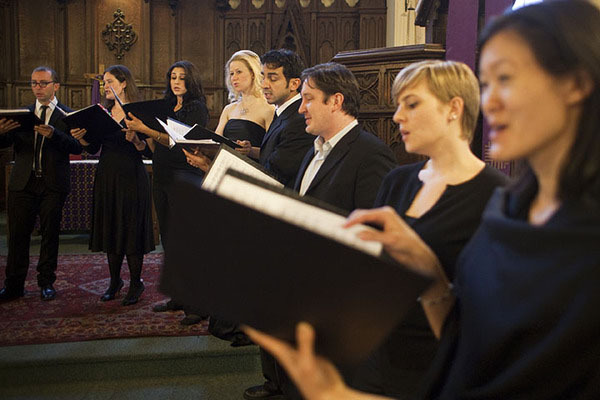I went to the Ghostlight concert, directed by Evelyn Troester, on a hot Saturday evening at Immanuel Baptist Church in Portland. It is simply one of the best vocal ensembles I have heard in a long time, and the program selection was superb.
Ghostlight is an a capella choir from New York that is already making a name for itself. Its performances in Portland and Camden mark its Maine debut.
An added attraction was the world premiere of “The Tide Rises, The Tide Falls,” a setting of a Longfellow poem by Thomaston native Nathan Scalzone, who now composes in New York. Maybe it was the fine performance, but the work is head and shoulders above most settings, modern or of Longfellow’s time.
It captures perfectly the late poem’s expression of the evanescence of life compared to the eternity of the ocean. There is one passage, a crystalline descending scale, that is breathtaking.
The program was titled “Water and Light,” and each of the selections, from Palestrina (1584) to “The Tide Rises …” (2010) was intimately related to that theme. All seemed new, exciting and so well performed so that they made one rethink old prejudices.
Brahms descended into the deep, via a bass solo, in his version of “Cathedrale Engloutie,” titled “Vineta” while Debussy himself wittily compared summer and winter in “Yver, vous n’estes qu’un villain.”
After Scalzone’s work, the biggest surprise of the evening was a “Lux Aeterna” (1982) by Edwin Fissinger, proving that modern composers have the resources to outdo the old masters in Renaissance-style polyphony.
“A Drop in the Ocean,” (2006) by Eriks Esenvalds, was devout but highly unusual, incorporating whistling so good that it sounded like a piccolo obligato. Eric Whitacre’s “Water Night,” (1995), on a poem of Octavio Paz, was both profound and spectacular, with the chorus holding almost impossibly dissonant, but also beautiful, perfect intervals. (There is no accompaniment and Troester actually sings the pitchpipe tone before each selection.)
Ghostlight has all the characteristics of a world-class choir — perfect intervals, huge dynamic range, wonderful delineation of parts, clarity, and so on — but there is something extra that I can only characterize as resonance, the strength and quality of modulated overtones that one finds in Tuvan throat singing.
The encore was a sophisticated but perfectly tuned version of “Deep River.”
The unfortunately small number of those who braved the 100-degree heat to attend were well rewarded. I hope Ghostlight returns soon.
Christopher Hyde’s Classical Beat column appears in the Maine Sunday Telegram. He can be reached at:
classbeat@netscape.net
Send questions/comments to the editors.


